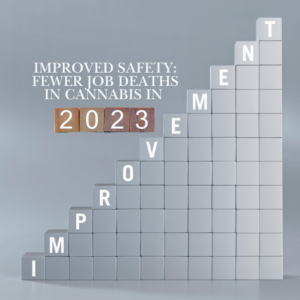Denver Report: Cannabis Legalization Did Not Affect Crime Rates

Denver’s Cannabis Revenue Drops to $48.1 Million Amid Industry Challenges
Denver’s marijuana industry, once a national model for legalization and revenue generation, is facing significant challenges as revenue from taxes and licensing fees dropped to $48.1 million in 2023. This marks a sharp decline from the peak of $72.6 million recorded in 2021, according to a recent licensing bulletin released by the City and County of Denver.
Revenue Allocation and Community Impact
Despite the revenue decline, the funds continue to support vital community services. Of the $48.1 million collected, $7.95 million was allocated to services assisting the homeless, $7.53 million supported affordable housing initiatives, and $3.32 million was directed toward youth education programs. These allocations highlight the importance of marijuana tax revenue in bolstering public services across the city.
In addition, the report revealed that marijuana-related crime accounted for only 0.2% of total crime in Denver in 2023, underscoring that fears of increased criminal activity tied to legalization have not materialized.
“We created the plan that was implemented by many other cities across America, and one of the reasons why our plan has been copied by so many other cities is because we successfully prevented that prediction that crime would skyrocket,” said Eric Escudero, spokesperson for Denver Excise and Licenses.
Challenges Facing the Industry
The drop in revenue reflects broader challenges facing the legal cannabis industry, including market saturation, overregulation, and evolving consumer demands. Industry leader Mason Tvert, a prominent advocate of marijuana legalization, noted that the decline follows the high-demand phase experienced during the coronavirus pandemic, when many turned to cannabis during lockdowns.
“It is a very difficult time for the legal cannabis industry,” Tvert told FOX31, emphasizing the need for a solution to the problem of excessive supply and calling for more support for the industry. “They want to pay taxes and they want to be regulated and treated like other businesses, but they cannot survive if we continue to overtax and overregulate.”
Shifts in Law Enforcement Focus
As marijuana-related crime remains low, the Denver Police Department (DPD) has shifted its focus, with the marijuana task force being retooled to address the growing fentanyl crisis in Colorado. “You see the reduction in marijuana seizures over the last decade, so I don’t think this is a surprising number. This was where these numbers were trending towards,” said DPD Lt. Ryan Harris.
The shift reflects broader changes in law enforcement priorities as the market for legal cannabis stabilizes and public health concerns shift toward more pressing issues like opioid abuse.
Industry Contraction and Unlawful Use Trends
The report also highlighted other trends affecting Denver’s marijuana industry, including a decline in the number of medical marijuana dispensaries over the past eight years. Additionally, citations for unlawful use and public display of marijuana rose dramatically, with a 242% increase from 2022 to 2023, totaling 26 citations.
The increase in citations reflects ongoing challenges in public consumption regulation, even as the overall industry sees declining revenue and a shrinking number of dispensaries.
Looking Ahead: Addressing Industry Sustainability
As the industry grapples with reduced demand, regulatory burdens, and increased competition from illicit markets, stakeholders are calling for strategic interventions to ensure the sustainability of legal cannabis businesses. The City and County of Denver’s 2024 annual marijuana report, compiled by the Office of Marijuana Policy within the Department of Excise and Licenses, provides critical insights into these challenges.
Industry leaders emphasize the need for balanced regulations that allow legal cannabis businesses to thrive while continuing to contribute to the community. Addressing oversupply, adjusting tax policies, and ensuring fair market conditions are among the key strategies proposed to help the industry navigate these turbulent times.
With the cannabis industry playing a crucial role in funding social services, housing, and education programs in Denver, finding solutions to support its viability is essential not only for businesses but also for the broader community.











